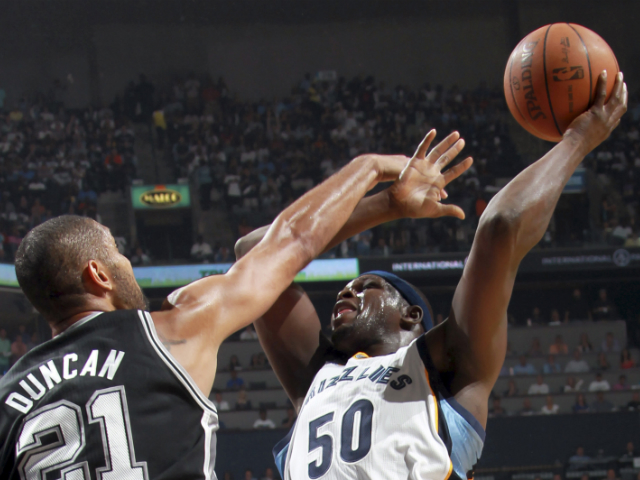
Can one really not want liberation, and instead choose captivity?
I shall explain. Last Thursday, after seven months of loyal viewership, my Warriors were eliminated by the Spurs. They put up a valiant fight in the face of an overwhelming force, but in the end, they passed quietly, surrounded by friends, family and loved ones. Three straight poor shooting games did them in (they survived Game Four, but the Spurs were only going to allow that type of collapse to happen to themselves once), and by the end of the proceedings, both Curry and Bogut were literally dragging their legs behind them. Warriors fans cheers changed from rabid to reflective, and eventually, relief, once Harrison Barnes returned after a particularly nasty fall on his head. In the end, the Spurs finished off my beloved team who had worked so hard to get where they were that evening. Time of death was 10:02 PM, Pacific Standard Time.

With the Warriors gone, I was left with the Spurs. As I’ve said multiple times before, this isn’t necessarily a bad thing. The Spurs were long a preferred team for me while the Warriors were under-performing so seeing them standing victorious, and moving on to the next round wasn’t neither an unpleasant site, nor a foreign one, even against my beloved Dubs. The Spurs are often one of the four final teams standing because of their defensive prowess, offensive efficiency, and dedication to a system that has produced tangible results. As in series before this one, the Spurs took their punches early while they identified the critical weaknesses of the team they’re attempting to defeat. After four games, those weaknesses were discovered: poor lateral movement from the Warriors perimeter defenders (either due to injury or by unfortunate design), and big men whose foul troubles would force the Warriors to go smaller than they would like against a team as long and lanky as the Spurs. There is no shame in getting beat by the better team, and in the final three games of the series, the Spurs were the better team. Indeed, this has long been their modus operandi when it comes to conducting their craft. The Warriors just learned the lessons that other Western Conference playoff teams learned over the years. It was a pleasure to have an opportunity to learn them.
And no, dear reader: there’s nothing wrong with watching this Spurs-Grizzlies conference finals. I have nothing against either team, and frankly, these two teams are built to match up against one another. The Grizzlies have long been mentioned as a team that could unlock the combination to an unlikely run to the NBA finals, and despite the relative non-competitiveness of Sunday’s game (a 105-83 drubbing by the Spurs), the possibility of this occurring still exists. The Grizzlies lost the first games of their previous two series to the Clippers and Thunder before turning it around in dramatic fashion. No team is better at exploiting individual matchups than the Grizzlies, who showed in 2011 against these Spurs (albeit one without the vast majority of the current Spurs’ current rotation) that circumstance can supersede hubris, and lesser teams can overthrow the greater ones (at least according to the textbooks). Given the elimination of the Westbrook-less Thunder, and the overall failure of the Lakers project, this is probably the best Western Conference Finals situation we could have hoped for, out of all of the scenarios that carried some sort of likelihood in the earliest parts of the season.

But trying to enjoy this series takes me back to unhappier times. The joy of “cheering” for two teams I am, essentially, a liberated fan of is far less vibrant than it used to be. Seeing one’s team perform at a high level for a discrete amount of time is a special pleasure that can be endlessly re-created, but never relived. In the end, you’re left with the symbols and icons of different teams; deeply meaningful for the fans of those particular teams, but dull and unrecognizable to those who have not been around them since time immemorial. Yes, for fans of Memphis, there is distinct pleasure in “gritting and grinding” their way to the NBA Finals. Absolutely, for fans of San Antonio, the joy of seeing rapid ball movement flow through Tim Duncan, an unmovable redwood tree standing brilliantly in a verdant grove, allowing all other vegetation to grow and thrive around him, must be a feeling unparalleled. The raucous mob has buried both of these teams many times over; felled by their relatively small market sizes and preoccupation with getting under the salary cap to remain fiscally solvent. To see both teams playing each other in the conference finals, having stuck firmly to their guns, must be a wonderful feeling.
There’s nothing wrong with being a liberated fan. Indeed, being a casual fan vaguely requires liberation; an ability to transpose yourself among the supporters of a distant, foreign team in order to establish an emotional connection with the proceedings happening on the television or computer screen sitting lifelessly in front of you. We tend to ignore the things we feel nothing towards. Creating a bond between a team (or a player) based on circumstances beyond your control is a natural tendency among sport fans. I have no qualms wanting the Spurs to win the overall series. Additionally, I wouldn’t mind if the Grizzlies won, and faced the Heat (sorry Pacers fans) in an intensely competitive NBA finals series that pits large market glitz with small market grit. All of those scenarios would be acceptable; a worth-while end to a memorable NBA season.
But sometimes, during some seasons, servitude to the team that has kept you captive is far preferable.
